Polymers BioPolymer Recycling Hydrogen 23-02-2021 - Arhive
Polymers BioPolymer Recycling Hydrogen
Crude Oil Prices Trend

-EU beverage packaging aims to be fully circular by 2030
Launching its Circular Packaging Vision 2030, the industry commits that by 2025 its packaging will be 100% recyclable and its PET bottles using 50% recycled content. It ambitions that by 2030, its PET bottles will be made from 100% recycled and/or renewable PET, where technically and economically feasible. It also pledges that more than 90% of its packaging will be collected and that it will use more refillable packaging. These actions, says UNESDA, are directly contributing to the EU circular economy transition and surpassing EU targets set out in legislation.
“Our goal is that beverage packaging achieves full circularity and is recognised as a resource in a circular economy: it has value, is recyclable, is collected and used as recycled content,” said Ian Ellington, UNESDA president and SVP and Chief Category Officer, PepsiCo Europe. “We believe that packaging is a resource that should never be wasted and are taking numerous actions to achieve full circularity and support the European Commission’s agenda of accelerating the transition towards a green economy.”
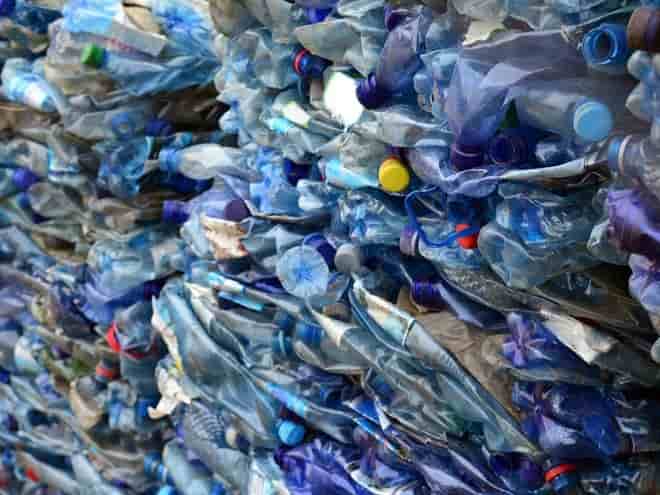
Packaging for limited-edition design offers enhanced recyclability and contributes to reduction of plastic waste. Toppan Printing, a global leader in communication, security, packaging, décor materials, and electronics solutions, has successfully collaborated with Unilever Japan on quality tests resulting in the adoption of mono-material flexible packaging for “Lux Luminique Sachet Set Limited Design,” which is due to go on sale in Japan from April this year. Polymers BioPolymer Recycling Hydrogen
With the problem of plastic waste receiving significant attention, demand for more eco-friendly packaging continues to increase, and companies around the world are taking various measures focused on targets for better circulation of plastic resources used for packaging and containers. Unilever has announced global commitments for a waste-free world, aiming to halve its use of virgin plastic; help collect and process more plastic than it sells; and ensure that 100% of plastic packaging is designed to be fully reusable, recyclable or compostable. Unilever is transforming its approach to plastic packing through its ‘Less plastic. Better plastic. No plastic.’ framework and making progress around the world.
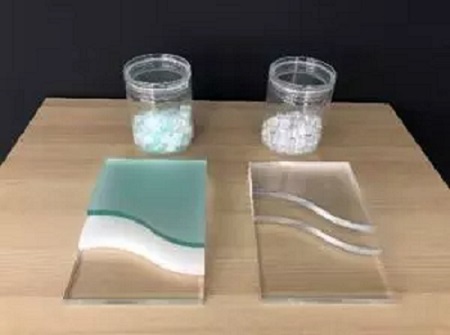
-PreZero opens light packaging sorting plant in Belgium
The ne Germany-based PreZero International has announced that it has started operations at its new sorting plant for light packaging in Evergem, Belgium, following a one-year construction period. The new automated plant is expected to separate about 80,000 metric tons of material collected from around Brussels and in Belgium’s Flanders’ region. Polymers BioPolymer Recycling Hydrogen
PreZero invested about 46 million euros (or about $56 million) into the site, which will create about 100 jobs. According to a news release from Fost Plus, a nonprofit organization responsible for sorting and collecting household packaging in Belgium, the plant’s separation procedures combine new technology to ensure it can meet the country’s “stringent sorting quotas.” In addition to wind sifters, overbelt magnets and ballistic separators, the Belgium-based plant will feature 26 near-infrared (NIR) devices to sort lightweight packaging into 14 fractions, including plastics polyethylene (PE), polypropylene (PP), polystyrene (PS) and polyethylene terephthalate (PET). Fost Plus reports that special robots in the plant will ensure that drink cartons, PET trays and high-density polyethylene (HDPE) packaging can also be separated in subsequent sorting of material.w plant features 26 NIR devices to sort lightweight packaging into 14 fractions.
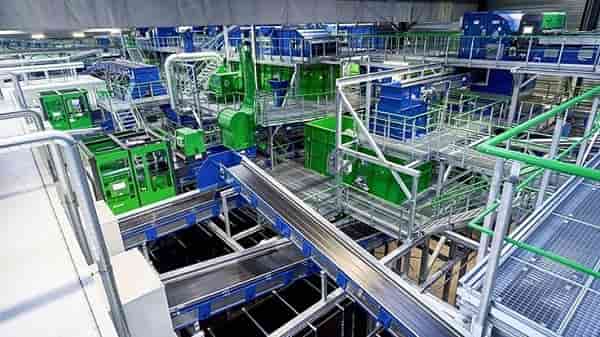
-PET bottle chip price soars 5% in a single day
The first working day after the Spring Festival holiday, PET bottle chip price hiked to 6500-6600yuan/mt by cash EXW and $900-950/mt FOB Shanghai, respectively up 200-300yuan/mt and $40-50/mt, or 5% from pre-holiday level. If PET has futures market, price fluctuation of the day may have already exceeded the up limit. In terms of trading volume, production and sales of most bottle chip producers is flat. Trading volume of few large plant has surpassed 40kt.
This round of rise is mainly driven by the soaring polyester feedstock, particularly surging MEG, whose price index has risen 8.8% in a single day. Due to the temporary shutdown of refining and chemical units in extremely cold weather in North America, MEG futures hikes to the up limit on the first working day after the holiday, and the spot/EG2105 spread enlarged significantly. Polymers BioPolymer Recycling Hydrogen
PTA rise is less than MEG, and PTA processing spread obviously narrowed, despite the expanding turnover. Later, if some units do undergo maintenance, PTA price may rise.
Export market is another key factor driving up the market. According to CCFGroup statistics, PET bottle chip export value began to rise since end Jan, basically one price a day. According to feedback from some factories, in merely one week to Spring Festival holiday, export order intake has reached more than 20kt. Till Feb 18 afternoon, PET resin export price index had risen 10.4% from $815/mt at end Jan to $900/mt FOB Shanghai.
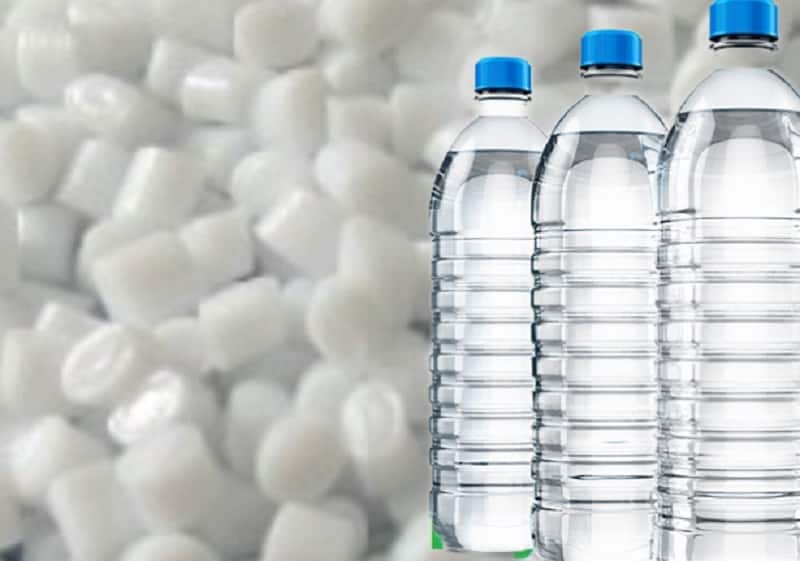
-CTK Bio Canada develops bioplastic resins designed to decompose in soil and seawater
We are currently conducting in-depth experimental testing with academic partners to further enhance and validate the technology prior to its planned commercial deployment in 2022. Meanwhile, a provisional patent has been filed.
Currently, more than 360 million tons of plastic waste is generated annually, of which only 9% is recycled. Current estimates are that the mass of marine plastic will be equal to the mass of all fish species by 2050. This ecological disaster is an urgent concern and CTK Bio Canada aims to replace the traditional plastics used in packaging with safer and more sustainable alternatives.
Bioplastics currently account for only 1% of the world’s plastic production, many of which require specialized composting facilities to break them down. High costs, mechanical property issues, and poor long-term stability also limit the broader commercial uptake of bioplastics. Polymers BioPolymer Recycling Hydrogen
Currently, CTK Bio Canada believes it has found a solution. Founded by JK Park and Daniel Siam, the company is a new Canadian subsidiary of South Korean cosmetics giant CTK Cosmetics (“CTK”). CTK has invested heavily in research conducted by a Canadian team to reduce its environmental footprint.
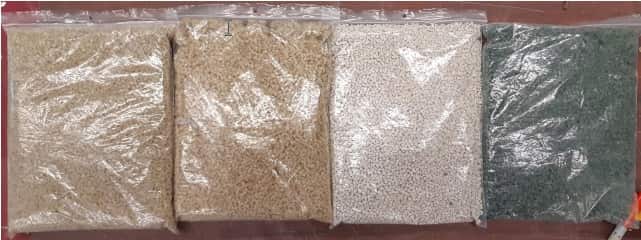
-U.S. winter storm impacting the polyester value chain, analyst says
The storm currently raging in Texas could have an impact on the global polyester chain, according to market analyst Wood Mackenzie.
As the U.S. deals with this week’s winter storm, refining and petrochemicals outages could have an impact on the global polyester chain, according to market analyst Wood Mackenzie. Polymers BioPolymer Recycling Hydrogen
Power and water outages have affected much of Texas since Feb. 15, and although they’re gradually being restored, access to feedstock remains an issue as wellhead production freezes off.
“The most affected products are paraxylene and monoethylene glycol,” said Salmon Lee, Wood Mackenzie head of polyesters. “In the affected states, capacities of these two important building blocks for polyester production total 3.4 Mt and 4.99 Mt respectively. PTA plants in the U.S. are located outside the disaster zone and are still running. However, this may change if paraxylene supply dries up amid the outages.”
For now, Lee said, U.S. polyester production is reported to be business-as-usual, but uncertainty prevails in the raw material sector if either paraxylene/PTA and/or monoethylene glycol (MEG) supply runs dry – the status of polyester plants could change very quickly.
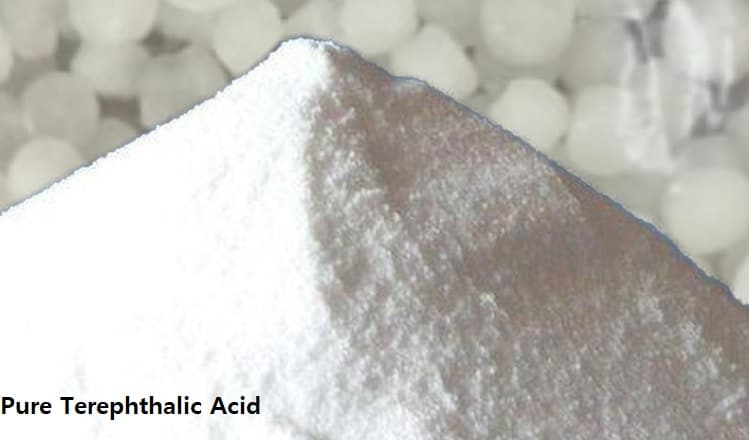
-Versalis: new certified product range for sustainability
Eni’s chemical company has obtained ISCC Plus certification for production from bionaphtha and chemical recycling Polymers BioPolymer Recycling Hydrogen
San Donato Milanese (Milan), 16 February 2021 – Versalis, Eni’s chemical company, has obtained ISCC Plus certification for monomers, intermediates, polymers and elastomers produced with sustainable raw materials, from bionaphtha and chemical recycling, at the Brindisi, Porto Marghera, Mantua, Ferrara and Ravenna plants. This represents an important step towards the goal of putting decarbonised and circular products on the market with a new “bio attributed” and “bio-circular attributed” range made from bionaphtha, and “circular attributed” in the case where the raw material is a “recycled oil”, a pyrolysis oil obtained from the chemical recycling process of mixed plastic waste.
Bionaphtha will be made available through Versalis’ integration with Eni, which has transformed two refineries into biorefineries, in Venice Porto Marghera and in Gela, guaranteeing the supply of sustainable raw materials from vegetable oils, exhausted food oils or other types of organic waste.
ISCC Plus is part of the ISCC certification scheme (International Sustainability & Carbon Certification, approved by the European Union), which is voluntary and allows companies throughout the supply chain to monitor and be able to demonstrate the sustainability of their products based on the sustainability, traceability and mass balance requirements.

-New Plant-Based Plastics Can Lead To Near-Perfect Recycling Efficiency
A team of scientists from the University of Konstanz in Germany has recently managed to develop a new method of recycling for plant-based plastics that is near-perfect in efficiency. Stefan Mecking and his colleagues have reported their findings in this week’s issue of the scientific journal Nature where they describe a new type of polyethylene (PE), the most widely used type of single-use plastic.
THIS METHOD RECOVERS AN IMPRESSIVE 96% OF THE STARTING MATERIALS.
Until now, the main obstacle in recycling plastic was finding a sustainable method in which to break the chemical bonds in order to recover valuable materials that can then be used to produce other high-quality plastic. Polymers BioPolymer Recycling Hydrogen
“Key for our method are polymers with a low density of predetermined breaking-points in the polyethylene chain so that the crystalline structure and material properties are not compromised”, Stefan Mecking explained.
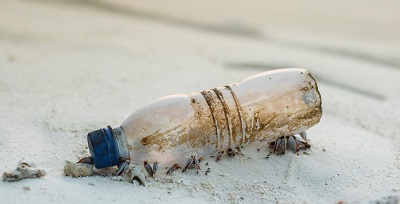
-Polyester market embraces a good start after holiday
Some polyester companies restarted work after holiday on Feb 18. Price of polyester fibers largely climbed up on the first day of trading after the Spring Festival holiday, with increment of POY, FDY, DTY, PSF, water bottle chip and PET fiber chip at 300yuan/mt, 300yuan/mt, 200yuan/mt, 330yuan/mt, 275yuan/mt and 265yuan/mt respectively. However, cash flow of polyester products did not enlarge, basically flatting with pre-holiday level, as this round of increase was mainly propelled by upstream feedstock market. Polymers BioPolymer Recycling Hydrogen
Currently, the recovery of downstream plants is expected to be smooth, better than the estimate made before the Spring Festival holiday. Some downstream companies restarted production rapidly as some non-local workers decided to stay put for holiday. In addition, the COVID-19 is controlled well during the Lunar Chinese New Year, so the return of non-local workers to their job will be faster. Workers from low-risk areas do not need to have COVID-19 nucleic acid testing. Thus, downstream market may see faster post-holiday recovery this year. Polyester companies do not witness big inventory burden. Although the stocks of PFY are high in downstream participants, downstream buyers are still willing to purchase amid rising price. Sales of PFY and PSF remained sound on the first day of trading after holiday even though price largely increased by 300yuan/mt. Sales ratio of polyester fibers deserves anticipation in short run.
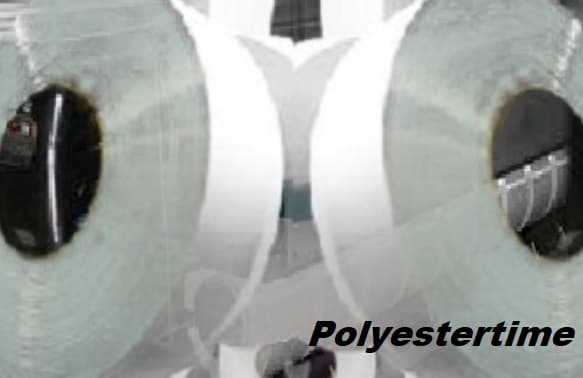
-Versalis loss narrows on recovering PE margins, strengthening Asian recovery
Versalis, the chemicals subsidiary of Eni (Rome, Italy), has reported an adjusted operating loss of €45 million ($54.5 million) for the fourth quarter, narrowing from a loss of €124 million a year earlier. Polymers BioPolymer Recycling Hydrogen
The improvement was driven by stable sales volumes and recovering margins, “particularly in the polyethylene [PE] business,” it says. The loss also improves sequentially from €53 million in the third quarter of 2020.
Strengthening economic recovery in Asia in the final part of the year, softening competitive pressures, and improved margins “supported the segment’s recovery in the fourth quarter, which also benefited from higher product availability,” it says. The recovery in PE margins in the quarter was driven by higher demand and lower imports into Europe, it adds.
Petrochemical product sales volumes totaled 1.33 million metric tons in the fourth quarter, up 27% year on year (YOY), driven by higher volumes of intermediates due to better product availability and higher demand for PE, elastomers, and styrenics, particularly in the appliance and packaging sector, Versalis says. Sales were also higher sequentially than the third-quarter total of 1.1 million metric tons. The average chemicals plant utilization rate also improved substantially, rising to 75%, up 9% both YOY and sequentially.
Margins improved mainly in the PE segment, with widening spreads versus ethylene, and also in styrenics/elastomers due to lower feedstock prices. “In the fourth quarter and in the full year, the cracker margin reported an increase as a result of the reduction of the feedstock prices and positive exchange rate effects,” it says.
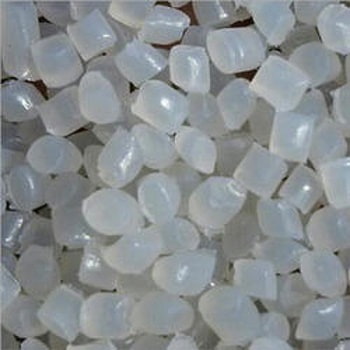
Polymers BioPolymer Recycling Hydrogen
